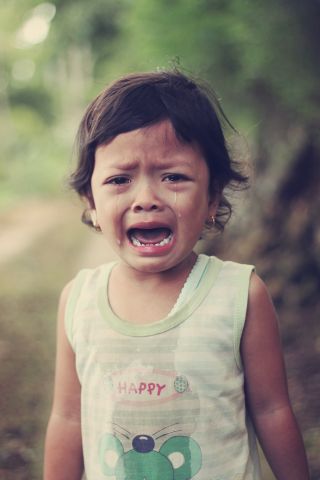Adverse Childhood Experiences
Most Adults Have Had an Adverse Childhood Experience
Summarizing WHO’s 2023 report on ACEs.
Updated December 22, 2023 Reviewed by Ray Parker
Key points
- Four in ten adults in Europe and six in ten in North America (NA) have experienced at least one ACE.
- ACEs are correlated with life-threatening chronic illnesses later in life.
- WHO estimates a financial toll of $581 billion for Europe and $748 billion in North America due to ACEs.

Childhood trauma has long-lasting impacts well into adulthood. Historically, childhood trauma has been minimized by many individuals, including healthcare workers and public healthcare systems. Adverse childhood experiences (ACEs) are one of the largest public health issues of our time, but thankfully, more research is emerging on this hidden epidemic.
The World Health Organization (WHO) released an extensive report outlining how a considerable amount of young people experience trauma from parents, family members, community members, or unjust systematic forces. This post offers a brief selective summary of the WHO's 2023 report on tackling adverse childhood experiences from the perspective of a licensed psychotherapist who specializes in trauma and ACEs. The report synthesizes findings from over 400-plus scholarly peer-reviewed journal articles that scientifically investigate traumatic stress associated with childhood maltreatment.
The WHO currently estimates that four in ten adults in Europe and six in ten adults in North America (NA) have survived at least one ACE in childhood. Unfortunately, many individuals also experience more than one ACE in their developmental trajectory. These numbers are also thought to be underestimated due to societal stigma, lack of reporting from parents, and ACEs being broadly unrecognized by individuals or healthcare professionals.
ACES occur in various contexts, such as:
- Physical, psychological, sexual, relational, or religious abuse.
- Neglect where the parent, family members, or community fails to meet the child's unique developmental needs in some capacity.
- It may occur around traumatic events with parents, such as parental separation, illness, death, substance use, unemployment, or incarceration.
- Poverty, discrimination, lack of social support, and poor access to health care or housing among other forms of community disorder.
What are some of the individual and societal impacts of ACEs?
ACEs significantly impact the outcomes of people's lives. These experiences are correlated with increased risks of being involved in the criminal justice system, developmental delays, health-harming behaviours, poor psychological health, and increased risk of poverty, homelessness, and unemployment.
The long-term neurological, hormonal, and immunological impacts of ACEs have been an expanding area of research in recent years. ACEs can result in higher mortality rates due to higher risks of developing life-threatening illnesses like cardiovascular disease or cancer. The empirical research clearly demonstrates how chronic traumatic stress that is stored in the body takes a serious toll on people's health and frequently shortens a person's lifespan.
The financial costs of ACEs are significant when we examine how ACEs impact our educational, criminal justice, and health or social care systems. The WHO estimates the economic toll of approximately $581 billion for the European region and $748 billion in North America.
It is also important to note how ACEs are statistically more common with marginalized groups, like lower socioeconomic communities or LGBTQ2IA+ populations. Yet, the report also outlines how adverse childhood experiences occur within affluent homes.
I appreciate how this research challenges long-held collective assumptions that most children in Europe and North America come from completely loving or safe homes. The truth is most people are not this privileged, and people's lives are far more difficult than many of us can imagine.
Ultimately, this report outlines how, despite the socioeconomic privilege associated with Western societies, millions of children are experiencing childhood abuse or neglect. One limitation of the report is that it doesn't capture how the current generation of young people is impacted by ongoing global existential threats, such as the ecological crisis, international wars, increase in political polarization, refugee crisis, or other systematic atrocities.
With the current state of the world, it is my personal hypothesis that ACEs are on the rise rather than the decline.
While this report is heartbreaking, the implications of the report are clear: We need to take better care of our young people, which also means taking better care of ourselves as adults. Without health, we have nothing in life. The necessity for individual, relational, communal, and societal change cannot be understated.
Read the full report for free here.
Facebook image: EugeneEdge/Shutterstock
References
Full WHO (2023) report can be found here: https://phwwhocc.co.uk/resources/tackling-adverse-childhood-experiences…




